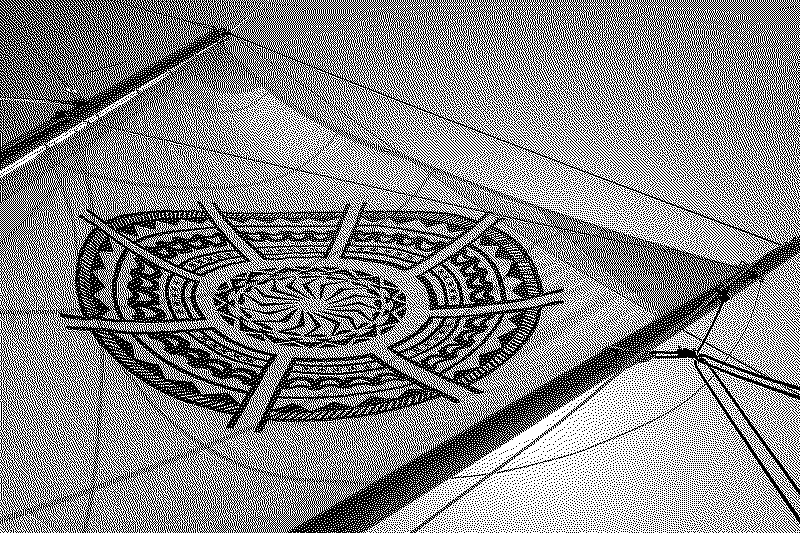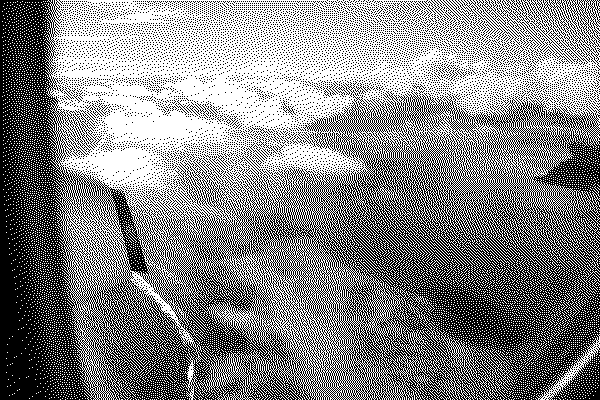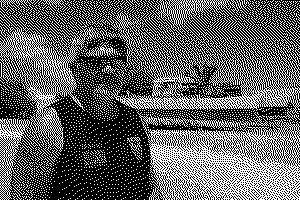The sea if suffering
We sit with master navigator Peia Patai, next to the double-hull sailing boat (the 'vaka') Motu Okeanos Waa’Qab at Rarotonga's harbour. A vaka is a Maori voyaging canoe. That morning Peia Patai and his crew have lifted the vaka out of the water and brought it into a dry dock where she will be repainted and renamed Paikea. The Cook Islands, an archipelago of 15 islands, is a vast Polynesia island state. But up to now, Peia Patai is only one of three master navigators who've been accredited as captains on the traditional vakas in the country.
Traditional voyaging is an amazing craft. It is done without modern technoloy but by observing the big swells of the sea and 'the heavenly bodies', the stars at night, represented in a compass with 32 sections. It therefore is also known as 'celestial voyaging'. "Most important times for us navigators are the sunrise and the sunset. That gives you the opportunity to readjust your course and then go through the night or go through the day. But the night times when you have the stars are the easiest times for navigation."

Historically, it used to be a sacred knowledge of well-kept secrets passed on only to chosen individuals from the Polynesian upper class. One of the most renowned navigators in colonisation's history was Tupaia, who guided Captain James Cook through the Pacific onboard the Endeavour and drew maps of many of the Pacific island's dispositions. This is how Lars Eckstein and Anja Schwartz introduce Tupaia in the Journal of Pacific History: "Tupaia’s Map is one of the most famous and enigmatic artefacts to emerge from the early encounters between Europeans and Pacific Islanders. It was drawn by Tupaia, an arioi priest, chiefly advisor and master navigator from Ra‘iat̄ ea in the Leeward Society Islands in collaboration with various members of the crew of James Cook’s Endeavour, in two distinct moments of mapmaking and three draft stages between August 1769 and February 1770. To this day, the identity of many islands on the chart, and the logic of their arrangement have posed a riddle to researchers."
This secret knowledge seems to have disappeared over time, with theories competing of why this has happened. Some say christian missionaries' zeal gave the death blow, others that vaka sailing was a collateral victim of the atomic test programmes, conducted by the USA and others in the Pacific. Peia Patai believes that secrecy itself led to the loss of knowledge. "Navigation," he says, "is a very important and sacred gift that you don't teach anybody. And that's exactly what's happening in Micronesia. They keep that within the family and the tribe. So it got to a stage for us that there is no more sailing. People settled when they found an island. And there was no one to pass the knowledge on." Peia and today's Voyaging Societies of the Cooks and the Pacific take the opposite approach: "Our teacher has encouraged us to teach and teach so that this knowledge stays alive." And the revival is visible in the Cook Islands, as so many groups of young people are given the opportunity to sail on a vaka, to one of the outer islands, and as Master Carver Mike Tavioni with many helping hands made new outrigger canoes at his workshop in Rarotonga in 2022.
For more, see: Voyaging Society and Okeanos Foundation
Occasionnally you may find Peia Patai in the fishermen's shed at Avana's harbour, cleaning the fish he's catched or having drinks with other people from the sea. Peia's a seasoned fishermen himself. He knows the ins and outs of the ocean as if they share one and the same body. He's very concerned about the sea's fate. "Yes, I have concerns," he says, "especially with the thoughts of seabed mining, that our governments are trying to. (...) My job is to protect the ocean so that the kids of tomorrow will enjoy it. I've seen the changes of being a fisherman all my life, that the fish are slowly disappearing. So we cannot blame our government all the time. But we can encourage everyone to protect that ocean or that important part of it. So yes, there are things that I'm not happy with. But I'm just going to continue what I need to do and open my mouth and say what is needed to be said?" Q. What is your concern then, we ask, about Deep-sea mining? Peia Patai: "My concern is, if it's down there, leave it alone. We don't really know what are the damages. According to them, they have 90 to 95% proof that everything's gonna be okay. But, I mean, maybe if we give enough time that we will understand more about the effects and what will happen. So there are some points that I might go against of what our politicians are doing." Q. We call our project A seat for the sea. And we are wondering, does the sea have a say in this? Or does the sea have a voice? Or can the sea express itself? Do you have a feeling that sometimes the sea talks to you? Peia Patai: "It always, always does. You can actually see that. We look at it and we think: Oh, she's so beautiful. But in actual fact, you know, she wants us to understand that she is suffering. She has an unheard voice. The voice is us. We have to open our mouth. The whales cannot talk, we can talk. Dolphins cannot talk but we can. If we conserve it, it will be enough for everybody later, because it's our food basket. Don't be fooled by her look. Because she is suffering with what we do today. So we are the voice. If we keep quiet, then we're not doing a favor for our ocean. We have to be loud in what we need to do and what we need to say."

